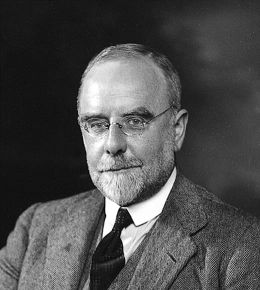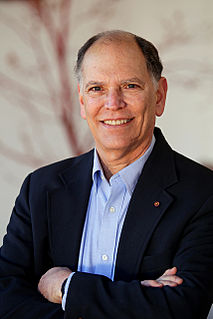A Quote by Ernst Haeckel
I established the opposite view, that this history of the embryo (ontogeny) must be completed by a second, equally valuable, and closely connected branch of thought - the history of race (phylogeny). Both of these branches of evolutionary science, are, in my opinion, in the closest causal connection; this arises from the reciprocal action of the laws of heredity and adaptation... 'ontogenesis is a brief and rapid recapitulation of phylogenesis, determined by the physiological functions of heredity (generation) and adaptation (maintenance).
Quote Topics
Action
Adaptation
Arises
Both
Branch
Branches
Brief
Closely
Closest
Completed
Connected
Connection
Determined
Embryo
Equally
Established
Evolutionary
Functions
Generation
Heredity
History
In My Opinion
Laws
Maintenance
Must
Opinion
Opposite
Physiological
Race
Rapid
Recapitulation
Reciprocal
Science
Second
The History Of
Thought
Valuable
View
Related Quotes
From the point of view of the pure morphologist the recapitulation theory is an instrument of research enabling him to reconstruct probable lines of descent; from the standpoint of the student of development and heredity the fact of recapitulation is a difficult problem whose solution would perhaps give the key to a true understanding of the real nature of heredity.
I shall borrow two words used for a slightly different purpose by the great demographer Alfred Lotka to distinguish between the two systems of heredity enjoyed by man: endosomatic or internal heredity for the ordinary or genetical heredity we have in common with animals; and exosomatic or external heredity for the non-genetic heredity that is peculiarly our own - the heredity that is mediated through tradition, by which I mean the transfer of information through non-genetic channels from one generation to the next.
Imitation both unconscious and conscious is par excellence the educational method of the family. It is plain that a considerable part of the adaptation of living beings to their environment, i.e., of beings that are born plastic, is passed on from generation to generation through imitation. Were this not so, much if not all of the road traversed by one generation would have to be travelled by the next generation from the very beginning and without short-cuts. Consequently there would be little chance for the novel adaptation, the propitious individual variation, that constitutes progress.
History is one long chain of reflections. Hegel also indicated certain rules that apply for this chain of reflections. Anyone studying history in depth will observe that a thought is usually proposed on the basis of other, previously proposed thoughts. But as soon as one thought is proposed, it will be contradicted by another. A tension arises between these two opposite ways of thinking. But the tension is resolved by the proposal of a third thought which accommodates the best of both points of view. Hegel calls this a dialectic process
Mixture of assimilation to earlier schemas and adaptation to the actual conditions of the situation is what defines motor intelligence. But and this is where rules come into existence as soon as a balance is established between adaptation and assimilation, the course of conduct adopted becomes crystallized and ritualized. New schemas are even established which the child looks for and retains with care, as though they were obligatory or charged with efficacy.
































